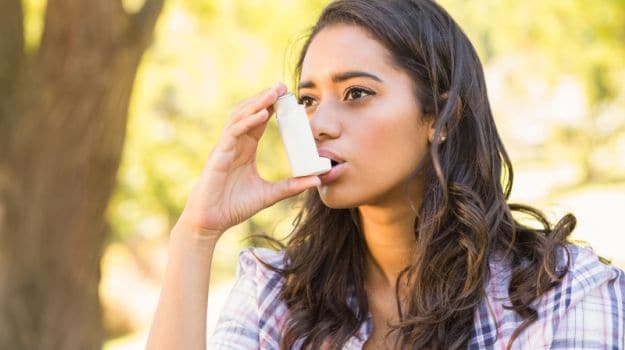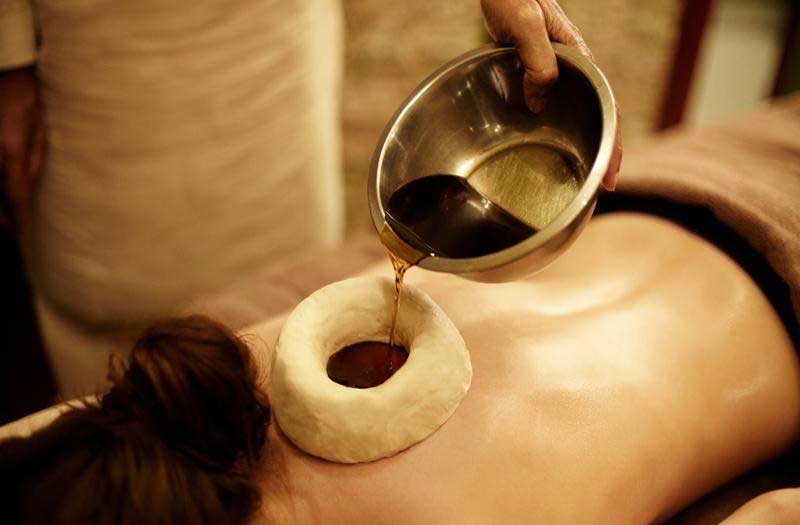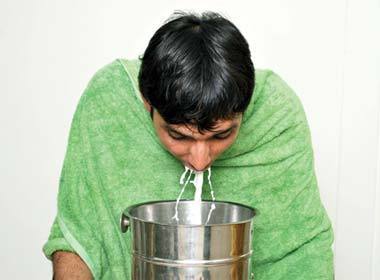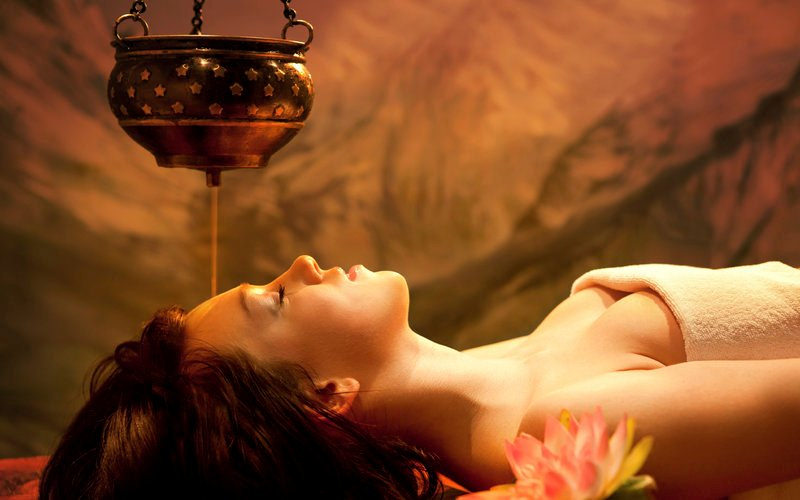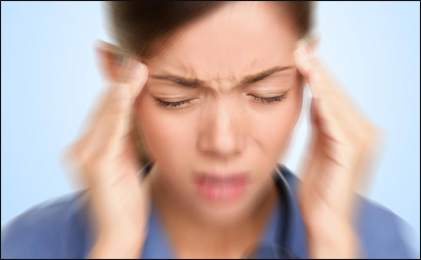Asthma is something which affects quite a large number of people. As a matter of fact, up to 20 percent of the population is affected by it. Isn’t it surprising that the ways to treat it are not so well known, taking into account how many people it affects? So, wouldn’t it be a great idea to learn more about it and learn to treat it in a pretty unique way?
When a person has asthma, the airways of the respiratory system become narrower than they usually are and this, in turn, leads to a shortage of breath. While many people would normally go to a conventional doctor in order to treat asthma, it may come as a rude shock to know that asthma is often triggered by reactions to conventional medicines such as non-steroidal anti-inflammatory drugs, which are also known as NSAIDs. Things are not that straightforward, are they?
Ayurveda is a body of medicine which looks not at just patching up and fixing medical problems, but rather to maintain a high level of overall health. Considering this, it should not be much of a surprise to come to know that when it comes to the treatment of asthma, Ayurveda is not superficial like a lot of other methods of treatment. As a matter of fact, it not only looks at the respiratory system but also at the gastrointestinal system in order to provide a comprehensive solution for a patient who is affected by asthma.
According to Ayurveda, the body is divided into three doshas and in the case of asthma, it is the kappa dosha which is culpable. If the asthma is detected before too long, a fully effective treatment can be undertaken and the patient can be restored to his or her pre-asthma level. However, if there is a significant delay between the time that asthma sets in and its detection, only management is possible.
Foods which trigger asthma are to be avoided like the plague! Examples of these foods happen to be animal products and dairy products such as curd. In addition to this, bananas and sugary foods or sweets, including sugar, in itself, are to be avoided.
A paste of rock salt, mustard oil or clarified butter can help if it is rubbed on the chest. Medicines such as Sitopalaadi choorna are to be taken, with this specific medicine ingested with honey. Kapha kartari addresses the issues with the Kapha and with it, asthma should be on its way to becoming a minor problem pretty soon!
What is Virechana ?
Virechana or Virechana Karma is a purification therapy and one among the five scared, healing therapies of the Panchakarma. The Panchakarma encompasses five treatments that can prevent and heal a number of physical, mental and emotional disorders and illnesses.
TREATMENT
The Virachana therapy is medicated purification therapy, cleansing the body from excess pitta accumulation, purifying blood and clearing toxins. The therapy primarily concentrates on the toxins accumulated in the liver and gall bladder, thus cleansing the gastro-intestinal tract completely.
Virechana Karma, mentioned in the Charaka Samhita, is known to be the best cure for treating the diseases emerging from vitiation of the pitta dosha.
VirechanaKarma, mentioned in the Charaka Samhita, is known to be the best cure for treating the diseases emerging from vitiation of the Pitta dosha.
TYPES OF VIRECHANA KARMA
Anulomana
Sansarjana
Bhedana
Rechana
PROCEDURE
In Virechana detoxification therapy, vitiated doshas and toxins are eliminated through the rectum. The therapy involves intake of Ayurvedic and herbal medicines that destroy the doshas and toxin from the body and bring them to the abdomen. Since Pitta is situated at the level of intestines, it is best to expel it from the anal route. The Ayurvedic medicines used for the therapy may vary from person to person depending on the patient's digestion strength. During the Virechana Ayurvedic treatment, the patient will be subjected to oral intake of Ayurvedic medicines followed by fermentation. The patient will also be subjected to a personalised light and warm diet.
The therapy procedures tend to change depending on the actors like body and mind constitution, age of the person, mental condition and emotional stability.
BENEFITS
Virechana Therapy is recommended and is highly beneficial for the following:
- Detoxification in case of accumulation of Pitta dosha,
- Eliminates toxin accumulation in the GI tract,
- Effective treatment for piles, constipation, acidity, ulcers, liver/ spleen diseases, jaundice, inflammations,
- Cleanses body from poisoning,
- Cures mild and chronic skin disorders,
- Relives headaches, anaemia, pain in the large intestine, non-healing wounds- Helps manage diabetes, asthma and heart diseases,
- Reduces gynaecological disorders,
Virechana therapy is an effective Ayurvedic treatment that can cure a number of health problems naturally. The Virechana Ayurvedic detox program, which may take 3 to 8 days, is also safe from any side effects.
What Is Vamana in Ayureda : Vamana Karma, also known as medical emesis or medical vomiting, is one of the five Pradhana Karmas of Panchakarma which is used in treating Kaphaj disorders.
Only a limited number of high-quality clinical trials have been conducted to date. Common limitations include low sample size, inadequate descriptions of randomization and blinding protocols, inadequate descriptions of adverse events, and nonstandard outcome measures. In spite of this, preliminary studies support the use of panchakarma and allied therapies and warrant additional large-scale research with rigorously designed trials.
One of the five therapies of Panchakarma in Ayurveda, Vamana treatment is a medicated emesis therapy that removes Kapha toxins accumulated in the body. According to Ayurveda, psoriasis is caused due to the imbalance of Kapha dosha, which makes Vamana therapy as one of the most effective treatment procedures for psoriasis. The treatment is also prescribed to people with bronchial asthma, gastritis, skin disorders, sinusitis, diabetes and neurological ailments related to Kapha dosha.
Indications
1. Psoriasis
2. Respiratory tract infections
3. Gastro-intestinal tract disorders
4. Skin disorders like Eczema
5. Allergies
6. Diabetes
7. Obesity
8. Anaemia
Procedure :-
Generally Vamana treatment is carried-out in the early morning on empty stomach when the Kapha is intense. The night before the therapy, Kapha aggravating foods are provided to the patient. On the day of the treatment, depending on the condition of the patient, heat is applied to the region of chest as well as the back portion to liquefy the Kapha. After the liquefaction of Kapha in the body a special medicated drink is given to the patient that stimulates the emesis. Waste products (vitiated dosha) are eliminated through the upper gastrointestinal tract. After the emesis, the therapy is continued with ghee treatment and a steam bath. Proper rest is advised after undergoing the Vamana therapy.
Benefits :-
1)Vitiated Kapha dosha is expelled out of the body
2)Treats gastric problems
3)Enhances digestion and metabolism
4)Boosts immunity
5)Beneficial in managing Asthma and Cough
6)Flushes out toxins
7)Slows down ageing
8)Cleanses stomach
9)Boosts skin health
Shirodhara Health Benefits
Ayurveda is a 5,000 year old system of natural healing. The origins of Ayurveda come from the Vedic culture of India. In Ayurveda, the center of the forehead, often referred to as the Third Eye, is the center of spirituality, intuition and healing. The ayurvedic practice of Shirodhara has many health benefits.
What is Shirodhara?
Shirodhara therapy involves a stream of warm oil steadily dropping over your head. Shirodhara brings about an unexpected sense of calmness, an immense feeling of relaxation and a wonderful stillness of the mind. The therapy is often used for the treatment of headaches, extreme migraines, insomnia, hypertension, stress and nervous disorders. Shirodhara is based on the principle of invigorating the mind and bringing oneness in the body.
How is Shirodhara done?
During Shirodhara treatment or therapy, you will be made to lie down flat on your back on a wooden or massage table. As you lie down, a copper bowl containing medicated oil will be hung above your forehead. A cloth is then placed over your eyebrows to prevent the medicated oil from flowing into your eyes. Your eyes will be covered by cotton balls dipped in cold rose water, which will help you to relax. Once the cloth and cotton balls are in place, the stream of oil is then started and allowed to fall on the forehead. Generally, Shirodhara treatment or therapy is based on an analysis of an individual’s doshas in order to recognize which one is out of sync. Once the out of sync dosha is isolated, the Shirodhara treatment is allowed to fall on the area of the forehead that corresponds with that dosha. Shirodhara usually lasts for 60 to 90 minutes, and when the treatment is over you are allowed to rest.
Does Shirodhara really work?
Shirodhara is an amazing therapy. When the constant stream of warm, medicated oil is poured over your forehead, it massages your head. The therapy leads to better blood circulation to the brain and nervous system. which helps to improve memory. Ultimately, Shirodhara soothes, pacifies, and nourishes the out of sync doshas through the application of the warm, medicated oil to the forehead, scalp and nervous system.
Who benefits from Shirodhara?
Shirodhara is a fantastic, ancient treatment for a compromised nervous system. The treatment can help relieve symptoms of anxiety, stress, fatigue and hypertension. Shirodhara relieves fear, tension, worry, headaches and can help in easing depression. It assists in regulating moods and gives a feeling of pleasure and relaxation. Shirodhara has been proves effective in helping Post-Traumatic Stress Disorder (PTSD), and also helps those suffering from insomnia, hypertension or jet lag.
Shirodhara is also a wonderful treatment for any healthy individual looking to maintain their current good health and enhance their overall wellbeing. The treatment promotes calm, clarity and immunity while stimulating relaxation, relieving fatigue and reinvigorating the body and mind.
Benefits of Shirodhara
Shirodhara is both relaxing and nourishing. The treatment helps to improve mental clarity and comprehension. Other long lasting benefits of Shirodhara include:
-Third Eye stimulation, which awakens intuition and wisdom
-Helps mental focus and concentration
-Reduces and relieves migraine headaches
-Improves sleep patterns
-Heightens the senses and the sensitivity of all five senses
Shirodhara is often referred to as the most divine ancient Ayurvedic ritual to rest and calm the mind. It is also well known for awakening your body’s intuitive knowledge.
In modern days, migraine has become a common disease that affects the young and the old equally. Migraine as such cannot be cured, but improving lifestyle and Ayurvedic medication can help you keep this disease under control and improve your quality of life.
What is Migraine?
Migraine, commonly known as Sooryavarta in Ayurveda, is a medical condition in which the excessive stimulation of the blood vessels in the brain causes a throbbing pain on one side of the head and is associated with nausea, sensitivity and vomiting. This happens because the vomiting centre of the brain gets activated during an episode. These symptoms are the most common signs; however, it varies from person to person.
What Causes Migraines?
These headaches worsen upon sunrise and it is at its peak at noon, when the sun is at its highest intensity and slowly subsides on sunset. This is one of the major factors in setting in an episode; it is not true in every case.
The other triggers that cause migraine attacks according to Ayurveda are:
Spicy and oily food
Stress, anger, grief, jealousy
Suppressed emotions or natural urges
Indigestion
Consumption of too much of dry, salty and pungent food
Consuming polluted food
General triggers may include:
Smoking and drinking
Stress
Fasting
Physical stress and exercise
Fluctuation in hormone levels during the menstrual cycle or the use of birth control pills
Stopping intake of tea or coffee suddenly
Stress to sensory organs in the form of bright noises, bright lights, strong perfumes or odours etc.
Certain foods or beverages may also trigger an episode of migraine. These include baked foods, chocolates, processed foods, spicy foods, onions, dairy products and peanuts. These kinds of foods are known to suddenly increase Kapha dosha or Pitta Dosha and as a result, trigger an attack.
Symptoms of Migraine-
It is usually characterised by a stinging, throbbing pain on one side of the head and is followed by nausea and vomiting. Some people may get visual aberrations called an aura- such as blind spots, blurred visions, distorted lines etc.
Ayurvedic medications that can help migraine are:
Indian licorice – Glycyrrhiza glabra
Sariva – Hemidesmus indicus
Hareetaki – Chebulic myrobalan-Terminalia
chebula
Amalaki – amala – Emblica officinalis
Mallika – Jasminum officinale
Hareetaki – Chebulic myrobalan-Terminalia
chebula
Bala – Sida cordifolia
Kumari – Aloe vera
Sariva – Hemidesmus indicus
Simple home remedies useful in migraine:
Tender leaves of jasmine or tender leaves of pomegranate are taken along with a pinch of salt and crushed well to obtain fresh juice. Early in the morning, preferably in empty stomach, 2-3 drops of this fresh juice is instilled to both the nostrils. Procedure is repeated once again evening hours (6-7 pm). This reduces the severity of headache in migraine.
One fist full of Doorva grass (cynodan dactylon) is taken and its fresh juice is obtained. To this, 2 pinch of licorice powder is added and mixed well. This is consumed during the noon hours. Procedure is repeated for 20-30 days. This helps to reduce the severity of illness significantly.
Take coriander seed powder – 1 teaspoon. add it to one cup of water, leave it as it is at night, next day morning, drink it on empty stomach.
Soak 5 raisins and 5 almonds in water at night, next day morning, eat them.






